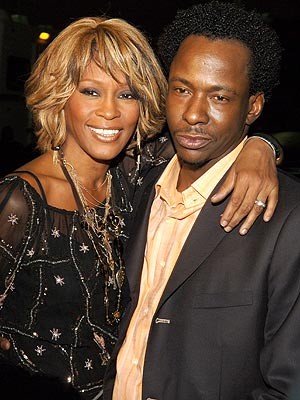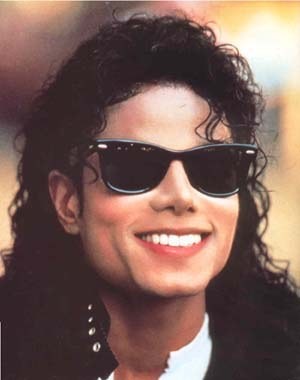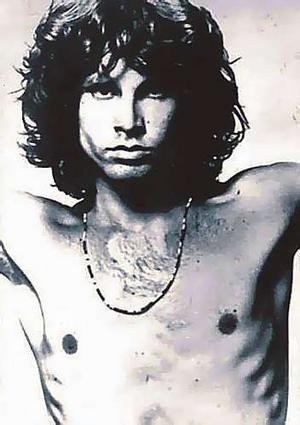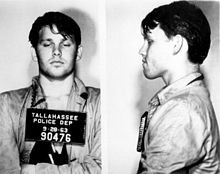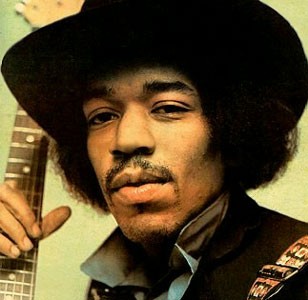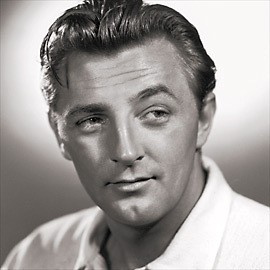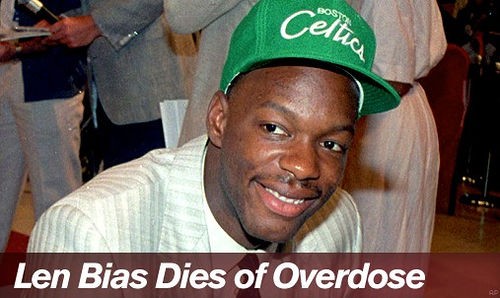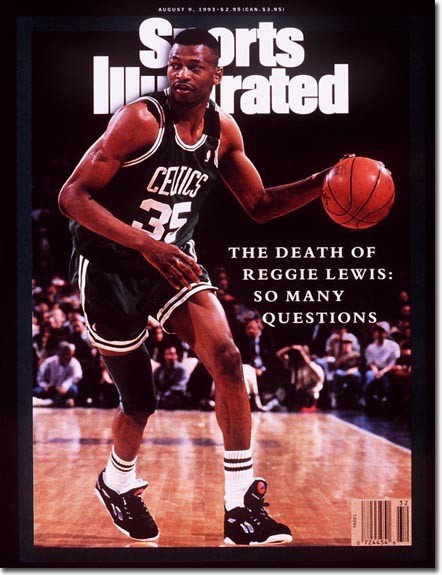Whitney Houston: Drugs and the Stars
Whom the Gods Love
By: Charles Giuliano - Feb 15, 2012
This weekend in the New Jersey church where she started a remarkable career singing in the choir, a tormented diva of soul, Whitney Houston will be laid to rest. Stevie Wonder and her Godmother of Soul, Aretha Franklin, are scheduled to perform.
Yet again we are saddened but not surprised by the untimely demise of a celebrated artist.
This past week there have been several re-runs of excerpts of a riveting and prophetic 2002 interview with Diane Sawyer. When asked about drugs she was surprisingly frank in admitting to the abuse of a broad spectrum of drugs and alcohol. As well as a brush with death. “I want to live” she told sawyer who asked where she wanted to be ten years from then.
A decade later we have an answer.
“Crack is wack” she told Sawyer who was clearly unhip to the implications. Crack it seems is for po-hos. For stars like Houston it’s a cornucopia of pimp weed, Dom Pérignon, prescription uppers and downers, and designer drugs.
When gazing into the camera as a network anchor, or talking with stars like Houston, Sawyer has a mannerism of lowering her head and looking up at us or them. It is a signifier of intimacy to the mass audience of viewers or subservience to the celebrity she interviews.
Despite the efforts at ersatz populism and humility, no, Diane is not like us. She is a golden child and person of privilege who cut her teeth in Nixon’s White House. Which is why I find her efforts to be sincere and concerned so rehearsed, forced and uncompelling.
What was so remarkable about the interview was not the probing of Sawyer but the willingness of Houston to show us her pain. It was a cry for help on network TV that would grind on through a cycle of rehab and relapse for another agonizing decade. The back story was the Svengali influence of her former husband and fellow musician Bobby Brown.
As the media reported, after Houston was found dead in the bathtub of an upscale hotel in LA, it took several days for her entourage to check out. You wonder who settled the bill. Troubled superstars like Houston, or Michael Jackson who overdosed in 2009, or Elvis Presley in 1977, are surrounded by a staff of enablers.
Rather like the levée et coucher of the court of Louis XIV gathered in the chamber of the king to get him up in the morning and put him to bed at night.
During the summer of 1986 Houston performed during the Concerts on the Common series in Boston. She was out of voice and conveyed more attitude than delivery that night. It was one of the first dates of a tour and she asked the audience to indulge her in holding back. The set was punctuated with excuses including a summer cold.
Something was terribly wrong and I sensed it was deeper than just an off night. Calling it as I saw it I filed a harsh review for the daily Patriot Ledger. It almost cost me my gig. There was a sharp reprimand from my editor who was responding to a flood of criticism from Houston’s fans who saw the concert differently.
As later events unfolded in the tabloids it only confirmed that I had been dead on in that scorching review. She may, as the tributes attest, have been one of the greatest voices and artists of her generation, but not that night.
It was not the first or last time that I would take heat from editors during my stint as a rock critic in the daily press.
I covered Janis Joplin at Harvard Stadium during the summer of 1970 for the Boston Herald Traveler. She was stoned and outrageous on stage. The between songs patter explored her early years of turning tricks. It was the bawdy frankness that fans loved. I actually have a bootleg LP of that gig.
Just a few weeks later, on October 4, she was found dead in a hotel room. It seems that she was seated at a table getting high. When she nodded out she lurched face down on a table. The impact broke bones in her nose which drove into her brain and killed her.
Prior to the demise of Joplin superstar Jimi Hendrix suffocated on his vomit in London on September 18. I knew him as Jimi James with Curtis Knight and the Flames when I hung out at the Cheetah in New York where the band performed.
One night back stage Curtis told us “Have your cameras ready guys. Tonight I’m turning Jimi loose.”
And how.
Al Wilson of Canned Heat also died that September on the Third.
The following year, July 3, 1971, Jim Morrison, the Lizard King, whose career imploded when he exposed himself during a Florida performance, had a heart attack in his Paris bathtub.
An editor, not my boss but one of the editors from the city desk out by the rim, gave me an assignment for a Sunday section piece. He had the buzz cut hair and demeanor of a Marine drill sergeant. Or cop.
“You’re the rock critic” he told me. “Write a piece warning kids about not looking up to these rock stars.”
He wanted me to trash Jimi and Janis. That was the assignment.
I went into the morgue to check the clippings. I found a fat envelope labeled “Drugs and the Stars.”
What a treasure trove it proved to be. There were great stories from Irma the Body, a renowned stripper, to Marilyn Monroe. Drug busts for Sal Mineo, Gene Krupa, Stan Kenton, Louis Armstrong, and Billie Holiday. My favorite was Robert Mitchum who during his trial told the judge that “I smoke up to three marijuana cigarettes a day.”
On the Monday after the piece ran that editor scowled when he passed me in the city room. That was my last such assignment. Seems I couldn’t be trusted to tell the truth.
Not that drug stories are confined to entertainment.
The Celtics dynasty was undone twice.
Near the end of the Larry Bird era Red used a number one pick to draft the next superstar, Len Bias. That night he croaked while celebrating. There was also the much disputed mess when Reggie Lewis died.
We could go on but I guess you see the point.
There will be other stories. Like the super talented and troubled Amy Winehouse who died way too young on July 23, 2011.
Poignantly, Houston told Sawyer “You don’t know what it’s like to disappoint 10,000 fans.”
Getting out on stage in front of a packed house or up for the big game too often means looking for an edge. It may mean bulking up on HGH or applying The Clear. It can be crack, wack, meth, booze, whatever.
Dock Ellis pitched a no-hitter against the San Diego Padres on June 12, 1970. He would admit in 1984 to being under the influence of LSD throughout the course of the game
There is always the man lurking about to give the stars a hit or a fix.
That night, that gig, that game it does the trick.
Sure as shootin it can kill you.

